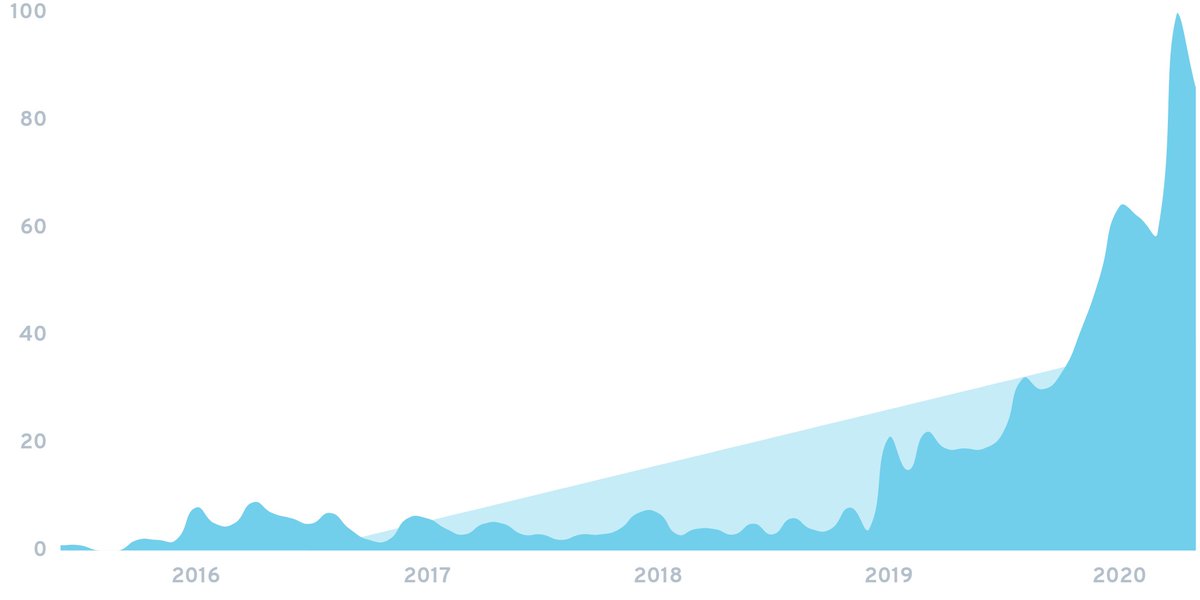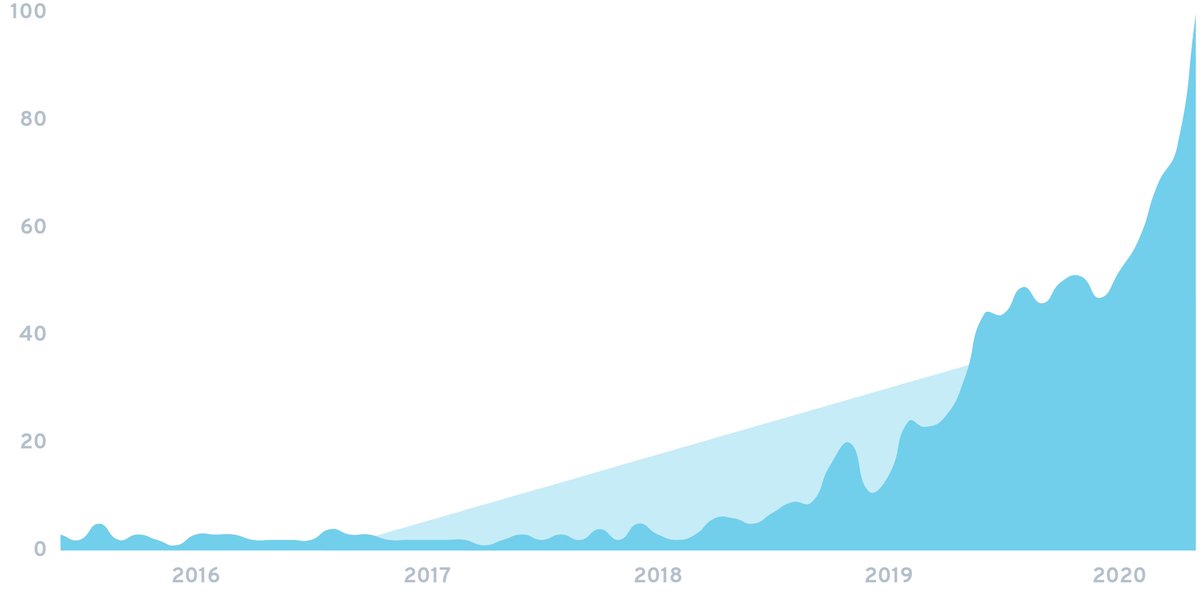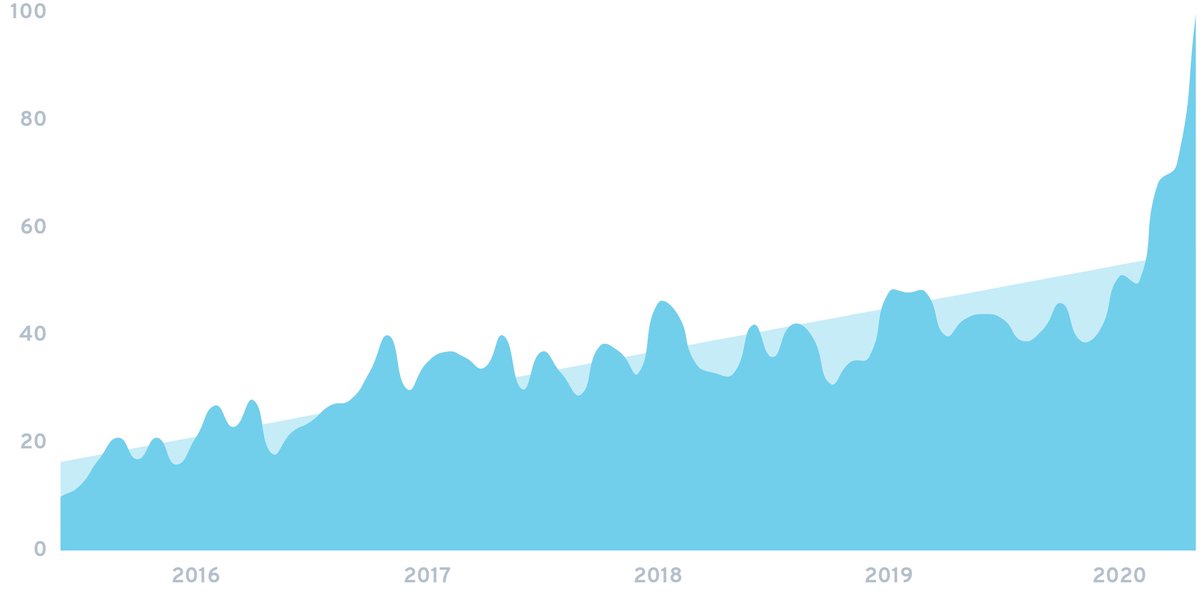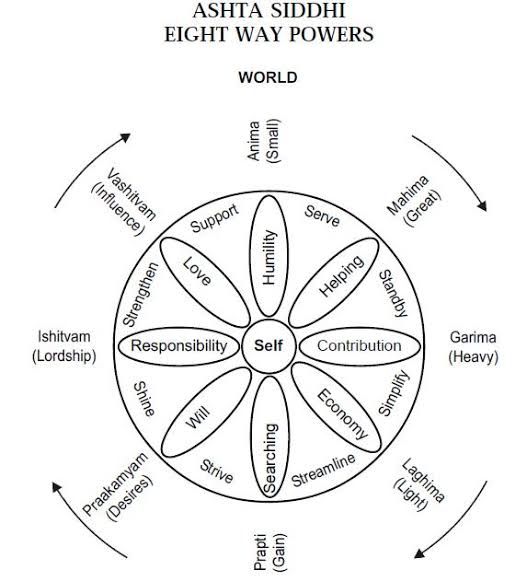I talk a bit about what business was like in 2008. Besides some personal struggles, 2008 was also a time when individuals and businesses were clamping down on spending. So what can you do if you are freelancing through that?
My interview with @Mixergy is live. Check it out here: https://t.co/fvxio9FArN
It's great. We cover 15 years of business.
I like getting tactical on podcasts. I know Andrew likes it too. I missed some spots. So here are 5 tips I wish I shared during the interview.
🧵👇
I talk a bit about what business was like in 2008. Besides some personal struggles, 2008 was also a time when individuals and businesses were clamping down on spending. So what can you do if you are freelancing through that?
This was part of what encouraged us to focus on membership sites.
!!!
We weren't tracking it. The membership sites we helped launched had reporting built in showing $$$.
There were already a couple established membership plugins for WP when PMPro launched.
We didn't try to recreate the affiliate networks they had already set up.
We focused on becoming the best free membership plugin available on the https://t.co/d1AEC5iAwa repository.
When I told Andrew about the frustrations of dealing with 3rd parties changing their APIs when trying to grow WineLog, he asked "Do you have to deal with that kind of thing with PMPro?"
Yes! We do. What's different? Focus.
We didn't have the energy, time, or desire to pivot and try something new.
If you have other active projects, you can turn to them for what seems like easier progress.
But if you only have one project to focus on, you HAVE to make it work...
Stopping work on WineLog, InvestorGeeks, and the other side projects we had back around 2010, gave us the time and attention needed to make PMPro a success.
When we made the switch from consulting to 100% products-based revenue, we turned down $90k in new work over 3 months to focus on a PMPro relaunch.
The relaunched PMPro 4x'd revenue immediately. Focus.
https://t.co/iX5eyPiHcq
I glossed over that one to talk about other add ons, but ARC is pretty cool. The idea behind it is insightful even if you don't use PMPro.
They maybe want access to something right away, but don't really see the benefit in extending membership another month or year.
Auto-Renewal Checkbox tries to address these customers.
You see this kind of UI all the time when donating online.
However, if you notice this pattern on your site, you should try some things.
Think about how you could create a separate 1-time-payment product. Maybe your subscription is giving TOO MUCH value, and you should break part of it off into a separate product.
I talk more about timing and pricing here:
https://t.co/klD0HkRXy7
I said it was easier to step away from work in a products company vs a services company.
Andrew said, "Yeah? What's the longest you stepped away?" Maybe hoping for a great sabbatical story, but I had none.
I'd say 4 days in the minimum to really get away. Shoot for 7. More could be better.
If you haven't done that in a while, work it out.
If you can, watch the interview anyway. Like it on the site. Ask a comment there. It really helps to show Andrew you're listening.
https://t.co/fvxio9FArN
https://t.co/x67YCk5v1o
More from Startups
You May Also Like
These 10 threads will teach you more than reading 100 books
Five billionaires share their top lessons on startups, life and entrepreneurship (1/10)
10 competitive advantages that will trump talent (2/10)
Some harsh truths you probably don’t want to hear (3/10)
10 significant lies you’re told about the world (4/10)
Five billionaires share their top lessons on startups, life and entrepreneurship (1/10)
I interviewed 5 billionaires this week
— GREG ISENBERG (@gregisenberg) January 23, 2021
I asked them to share their lessons learned on startups, life and entrepreneurship:
Here's what they told me:
10 competitive advantages that will trump talent (2/10)
To outperform, you need serious competitive advantages.
— Sahil Bloom (@SahilBloom) March 20, 2021
But contrary to what you have been told, most of them don't require talent.
10 competitive advantages that you can start developing today:
Some harsh truths you probably don’t want to hear (3/10)
I\u2019ve gotten a lot of bad advice in my career and I see even more of it here on Twitter.
— Nick Huber (@sweatystartup) January 3, 2021
Time for a stiff drink and some truth you probably dont want to hear.
\U0001f447\U0001f447
10 significant lies you’re told about the world (4/10)
THREAD: 10 significant lies you're told about the world.
— Julian Shapiro (@Julian) January 9, 2021
On startups, writing, and your career:























